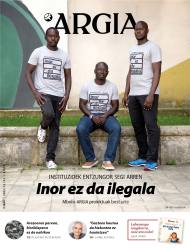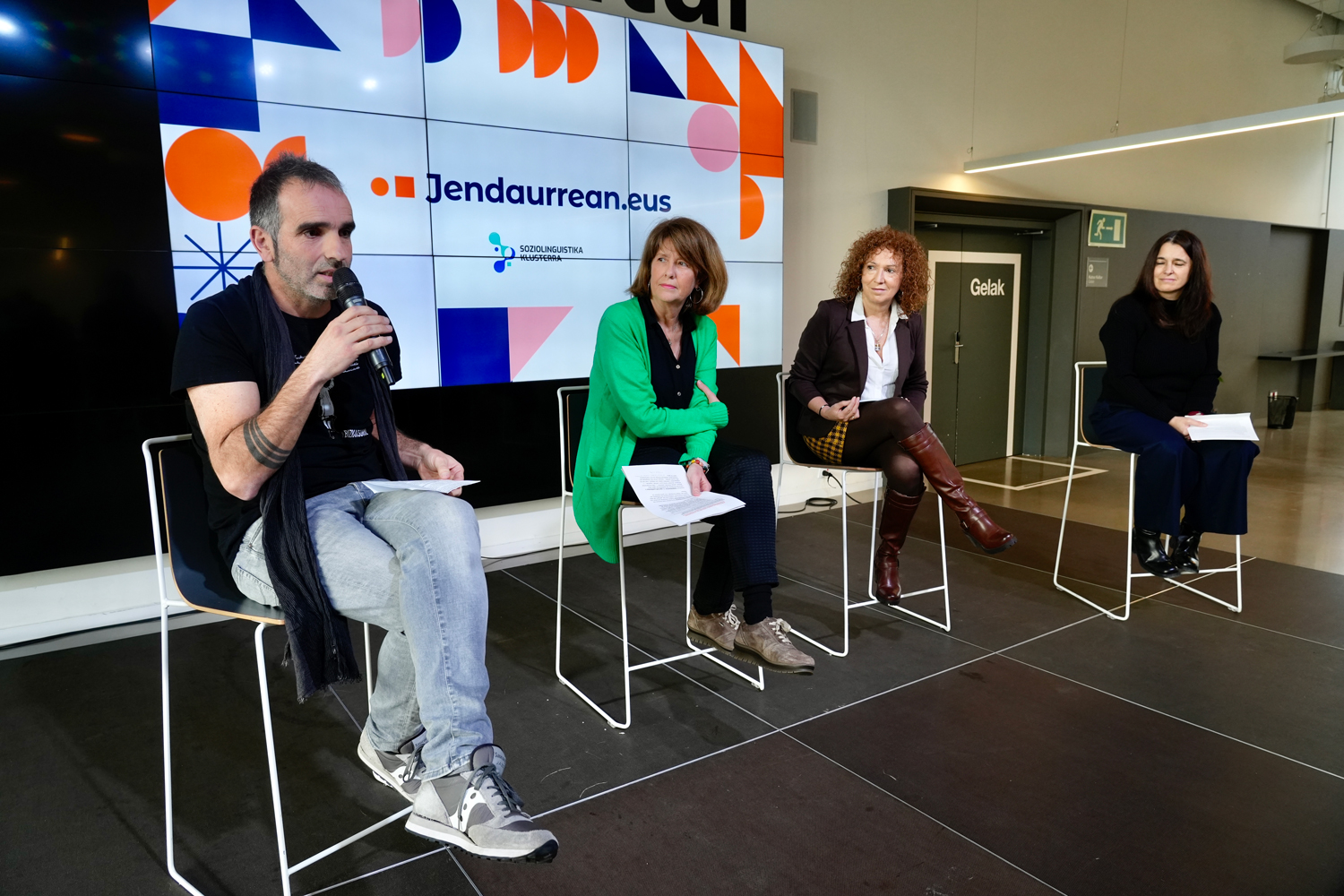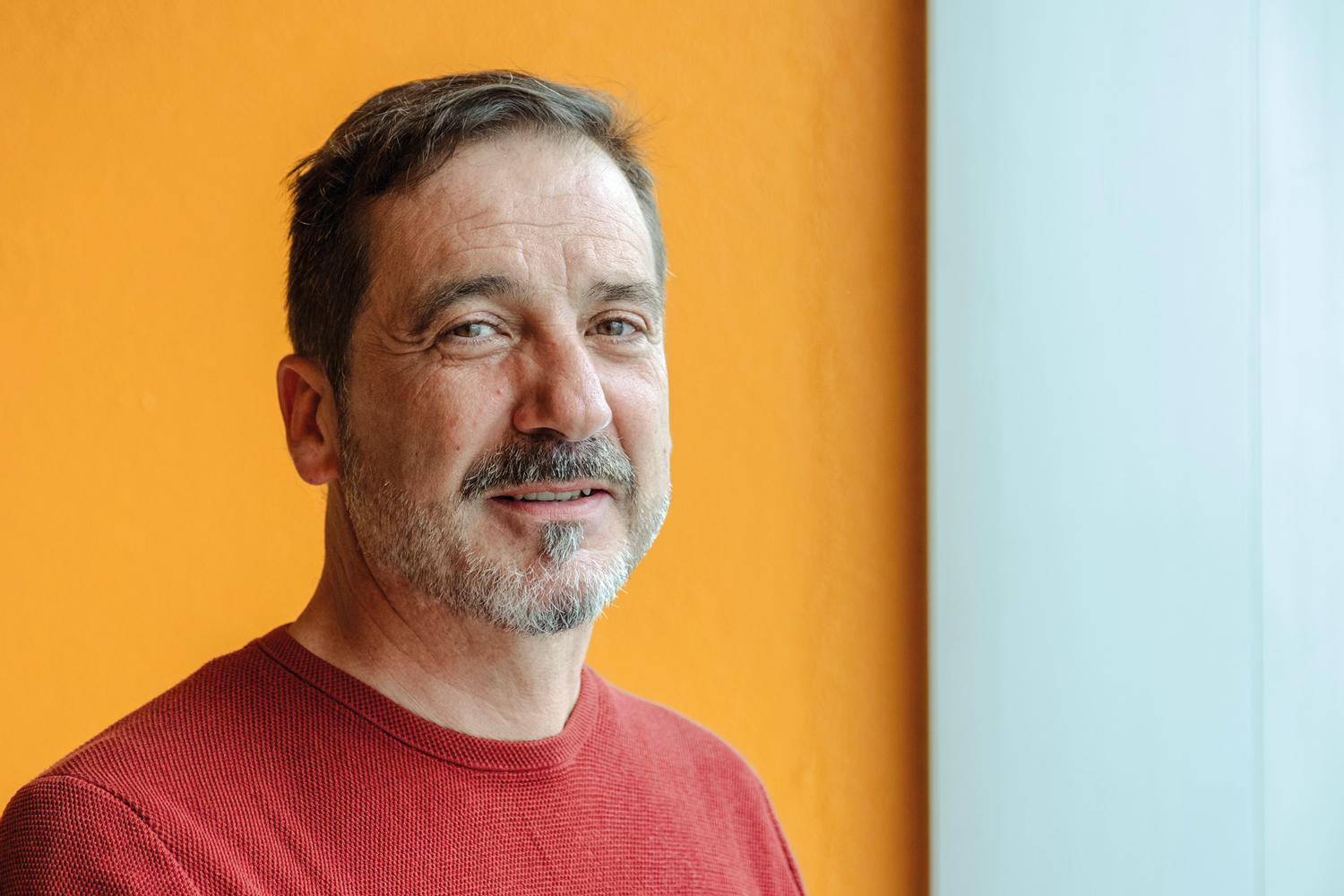"The Basque problem is more adult than adolescent"
- Jaime Altuna Funambulists of Language. Linguistic socialization focused on age and gender in sports has completed its doctoral thesis in July. From the in-depth knowledge of the theme and of what was written earlier by other researchers, it has approached with a special and rigorous look to listen to the adolescents of different sports and dance groups in Gipuzkoa. He says he has learned a lot and tries to reflect it in his thesis.
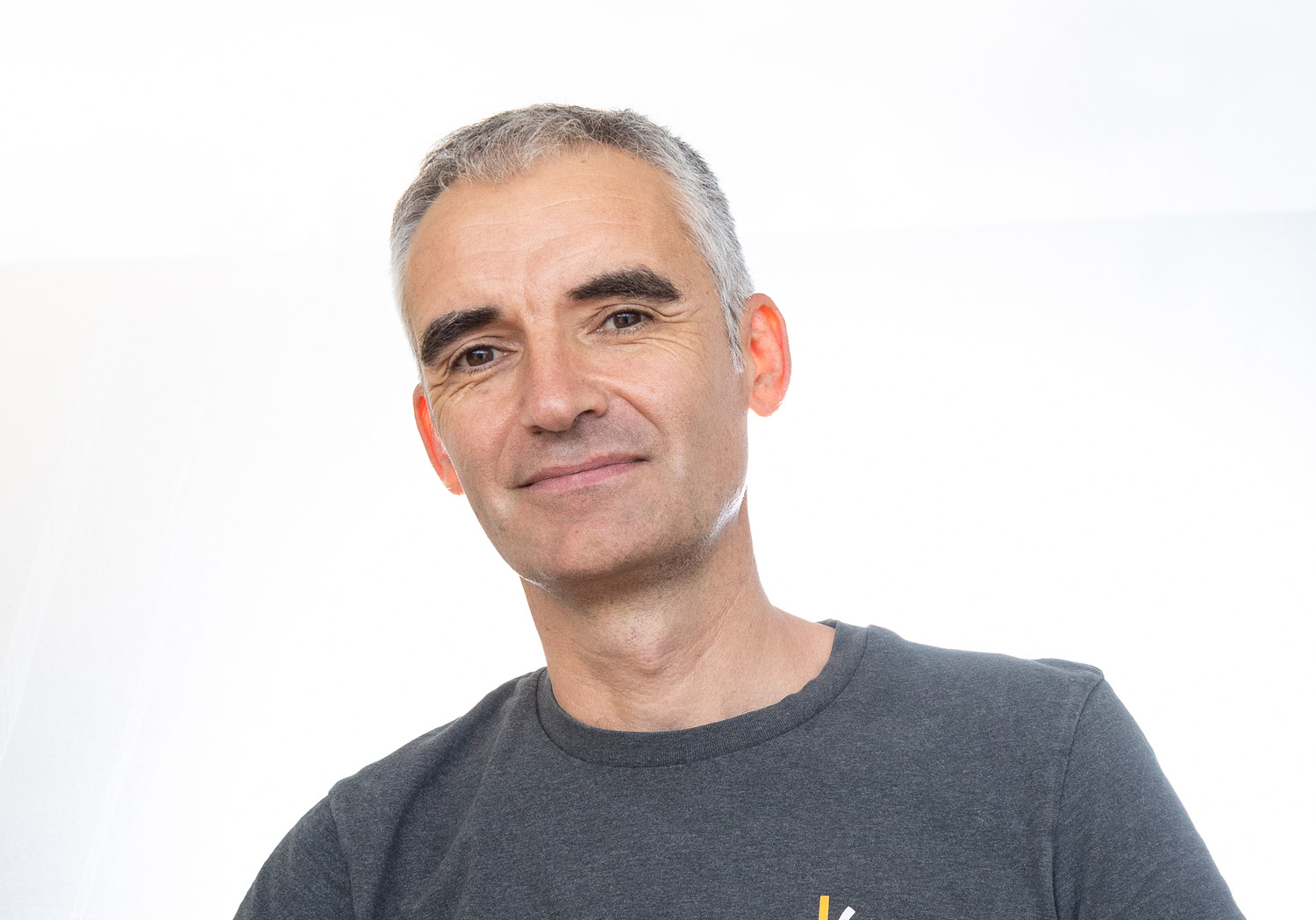
He has written his thesis on the relationship between three complex elements: adolescence, gender and language. What is this complexity?
Before I start working in academia, I come from the realm of child, adolescent and youth leisure. I see that this field is mentioned a lot, but that it is under-studied. It's a very large area and we lose ourselves. It is said that language policies must be made in free time, but we do not know what that area is and how we should actuar.La adolescence, as a category, has had and continues to have a significant burden in the process of revitalizing the Basque country; burden negativa.En as for gender, much has
been said in
the last decade. There are people who go and I have also been interested investigar.Entre those of us who
are in the revitalization of the Basque Country talk a lot about “the issue of young people”, but you talk about difficulties in the location and problem of this issue. What do you talk about?
In the institutionalization of the process of revitalization of the Basque Country and in the beginning of the linguistic public policies, the main line is the Euskaldunization of the new generations through the school. After the years we have come to a reading: “We are Euskaldunifying adolescents and young people, but they do not use it” I think it is related to the construction of adolescence in society. Adolescence, as a category, is over a hundred years old and has been constructed as a problematic category. Concern, crisis, against, imbalance… is always related to problems. In the case of Euskera, there are two issues, on the one hand, that expectations have not been met, and on the other, that adolescence is always related to problems. I've tried to understand how you experience all this from the teenagers' point of view.
"Speaking only in Basque for young people is a strong language, and in some villages speaking only in Spanish is quite marked"
You say that the discourse that society has built on them, at least in part, has been internalized by adolescents.
Both in this research and in other studies we have seen that adolescents have endorsed these discourses. And in a way, they perform them. They play the roles expected of them, and sometimes very exaggerated: they have to go against, transgression… They say that on the subject of language, the pregnancies introduce them consciously. And maybe they're not going to come in later.
Would you say that code change is the main feature of youth language for these young people?
Yes. I have clearly seen that code change is the main feature of language in adolescence. Young people say that the normal language is a confusing language. Basque and Spanish mainly, and English to another level. In language, factors such as the family, the people, the groups that participate… In some places it will be a change of code to introduce some words in Spanish in the activity in Basque; and in others, conversely, almost in Spanish with some words in Basque. But speaking only in Basque is a rather marked language; you see it necessary to introduce some Spanish words to speak in young Basque. And in some villages, speaking only in Spanish is quite marked; it is necessary to introduce some words into Basque.
.jpg)
It says that talking like this, choosing one or the other, is a way to make resistance.
This is Kathlyn Woolard's idea. It has defined it as an active form of syncretism about what was seen in Catalonia. I have also come to that conclusion: “I don’t want to choose. I see that in our society there are both.” Choosing one and using it only gives an ideological mark. It is therefore an option not to choose. And from what's come out in some interviews, I've come to the conclusion that there's a way to tell adults: “Until you are clear, don’t ask us to decide.” There is an element of protest or criticism.
In what space and how is the youth culture constructed? Do the young people you've studied share a single youth culture? There
is a global youth culture, shared by all, but there are many juvenile subcultures within it. As for language, we often don't look at that global culture. Today, young people are fully integrated and comfortable in the global youth culture. It does not matter whether it is a small respiratory town or a city in which the Basque country has less presence. Cultural references reach everyone and linguistically affect everyone. I think we have to put ourselves in that framework to analyze linguistic practice and ideologies, because they are working within that framework and making linguistic choices with that view.
Regarding the explicit attitudes that show linguistic ideologies, what are the main groups?
Among the Basque supporters, some are related to identity; they are part of the ideology that has been created since the 1970s. “The Basque language is my language”, “the Basque language is what makes us Basques”… It also appears that it is a minority language: that it is in danger, that we have to take care… Sometimes there is romanticism: that it is old, that it is a treasure, that it has no relatives… And they work in part. These ideas have been disseminated through the school and collected mainly from it.
"The choice of young people is not to choose the language. And from what's come out in some interviews, I've come to the conclusion that there's a way to tell adults: 'Until you know, don't ask us to decide.' There is an element of protest or criticism."
On the other side are the speeches of linguistic liberalism. In my research, I have not found what an explicit discourse says that Euskera is useless. What has appeared to me a lot is the discourse “what everyone wants”. It is very widespread and does not depend on certain social characteristics. These are arguments completely linked to
individualismo.Los discourses of both groups are in circulation, some people do not have an ideology and others may appear mixed within the same person. The dynamism depends on the situationn.Tambialso found
the discourse you have called “understanding and passing”. Yes.
They understand and accept that the school promotes the Basque and asks them to speak in Basque. But if you want to use Spanish outside school, you don't accept so easily that someone asks you to speak in Basque. If someone tells them to speak in Basque they understand why, but not always obedecen.Hay studies that say
that women use Basque more; moreover, the younger they are, the greater the difference. Do girls and boys have different experiences with language?
Very small differences are observed at the level of use, although they almost always appear. The causes have been few. In my thesis I have summarised what has been researched at international level. In contexts such as ours, general conclusions cannot be drawn. According to context and time, different reasons appear.
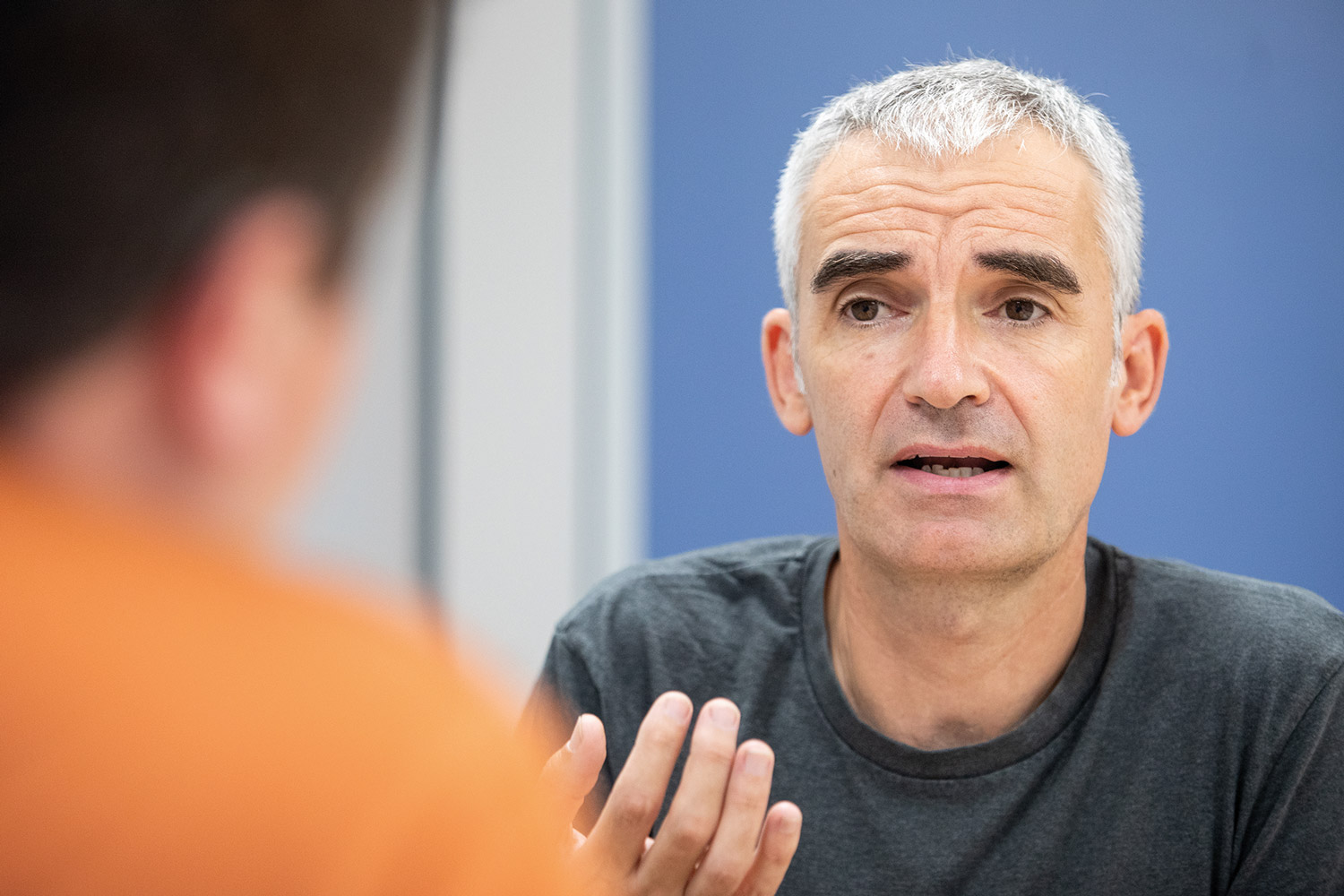
In
our case, I have seen that the practices that condition the situation influence the ways of speaking. Some activities are more related to boys and others to girls, which influences language. In relation to body and movement, sport uses a quick way of speaking, brief expressions related to force, which are related to masculinity and that in our environment tends to Spanish. Insults, mocks, jokes, etc., more Spanish is introduced. And kids feel more legitimated to use them. I don't mean that girls don't use it, but they don't feel so legitimated or "URL6"
researchers have previously pointed out that women have historically been attributed the responsibility of the Basque. Is this continuing today? What has happened in
minority languages and in migratory phenomena is the responsibility to maintain and care for the mother tongue of women. It is related to the role given to women in general. Also since the birth of Basque nationalism, the political responsibility of women has been the care of the language, from the maternal and the Miss's point of view. Transmission to women has been a responsibility, but also a burden. Even when language has been in the worst social situation, they have acusado.En this time
I have seen that there is a reflection of it. In many schools there are groups of Euskera in which girls and only boys participate. There is a relationship between school and language, as well as the role of women in school. In addition, in some activities of these groups is related to the care, not only of language, but also of the relationship with other younger students at school, for example. Researcher Onintza Legorburu has seen that the topic of language has gone from being highly politicized in the 1970s to more infantilized discourses, and that could also be behind the feminization of the topic.
It suggests that there is a relationship between feminization and the lack of prestige of the Basque country.
Among adolescents, at least, the defense of the Basque Country does not provide social, symbolic benefits. At least for boys it's deactivator. But we have to do much more research because changes are happening. Values related to masculinity have strength, but the demands of feminism are increasingly accepted in society, and we have to see what this will bring to the Basque.
I think we need to talk more about the construction of masculinity through Spanish than about the feminization of Euskera. Adolescents relate their maturation with their passage through Spanish. What I have gathered from the speeches of the most active adolescent girls in favor of the Basque country is that they ask the boys to activate them also by the Basque country.
You condemn the linguistic practices of adolescents as merely a result of their social conditions.
The Basque problem is more adult than adolescent. It's a message from young people: as long as you don't make a big change, we can't. As young people, we expect it to become adults, but today, being adults means doing it in Spanish.
We talk a lot about young teenagers, but we don't talk to them. We don't offer them ways to actively participate in this issue, to do things as they think. If this agency is not recognised, we are in vain. They have a high degree of reflection and we have to listen more because we learn a lot from them.
What risks do young people feel like a rope mounted funnel?
When I saw slackline in a park in Galway, it occurred to me that the situation of young people was similar to that of the Basque country. On the one hand, they receive a message to speak in Basque; in addition, they have to do well and correctly. Adults often say that young people talk badly: with the wrong dialect, with Spanish… Those of Basque origin have this pressure. And the new speakers, seeing that they don't have that language, live in that doubt. It has also appeared in many other investigations. Furthermore, I suggest that they are net free. They lack a network that dares them to speak in Basque and keeps them in case of a fall. If we take out a network that keeps those who are wrong or do not make full and excellent use of the Basque country, they may dare.
How does that network sew?What I propose
is that, paradoxically, we have to start removing the focus of young people. The priority is to influence the adult environment. If we do not complement the work of the school with the world of work and with what is done in the structural materials of the adult age, although school work is very good, it is not possible avanzar.Tambiin the non-formal sphere, solid linguistic policies
and planning must be implemented. To do this, the non-formal and informal sector must first be clearly defined and differentiated. We must build concrete plans in the non-formal field. First in the audiovisual, sports field… but in a structured and broad way.
Plazara, AEK, Uda Leku, Dindaia eta Ebete antolakundeak Baionan elkartu dira Famili'on egonaldi ibiltariaren lehen edizioa aurkezteko. Hizkuntza mailaren arabera eskaintza bat edo beste egongo da eta haur zein gurasoentzat izango da udaberrian.
I think it will have to do with the hangover of the profession, but I have to acknowledge that I look at the linguistic landscape of the places I visit. Signs that stick on the walls, hanging from streetlights, billboards, and supports that appear in shops or companies (signs,... [+]









